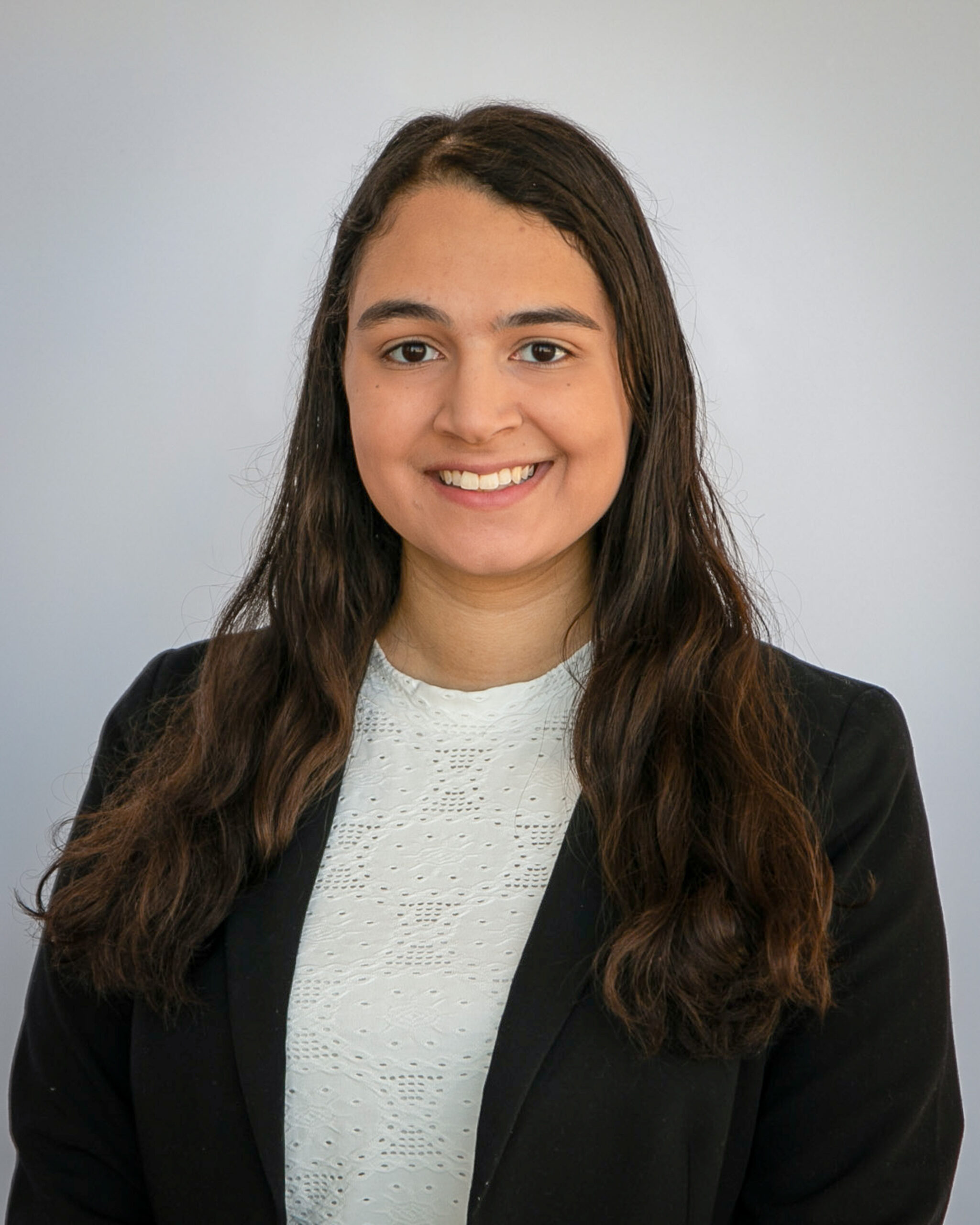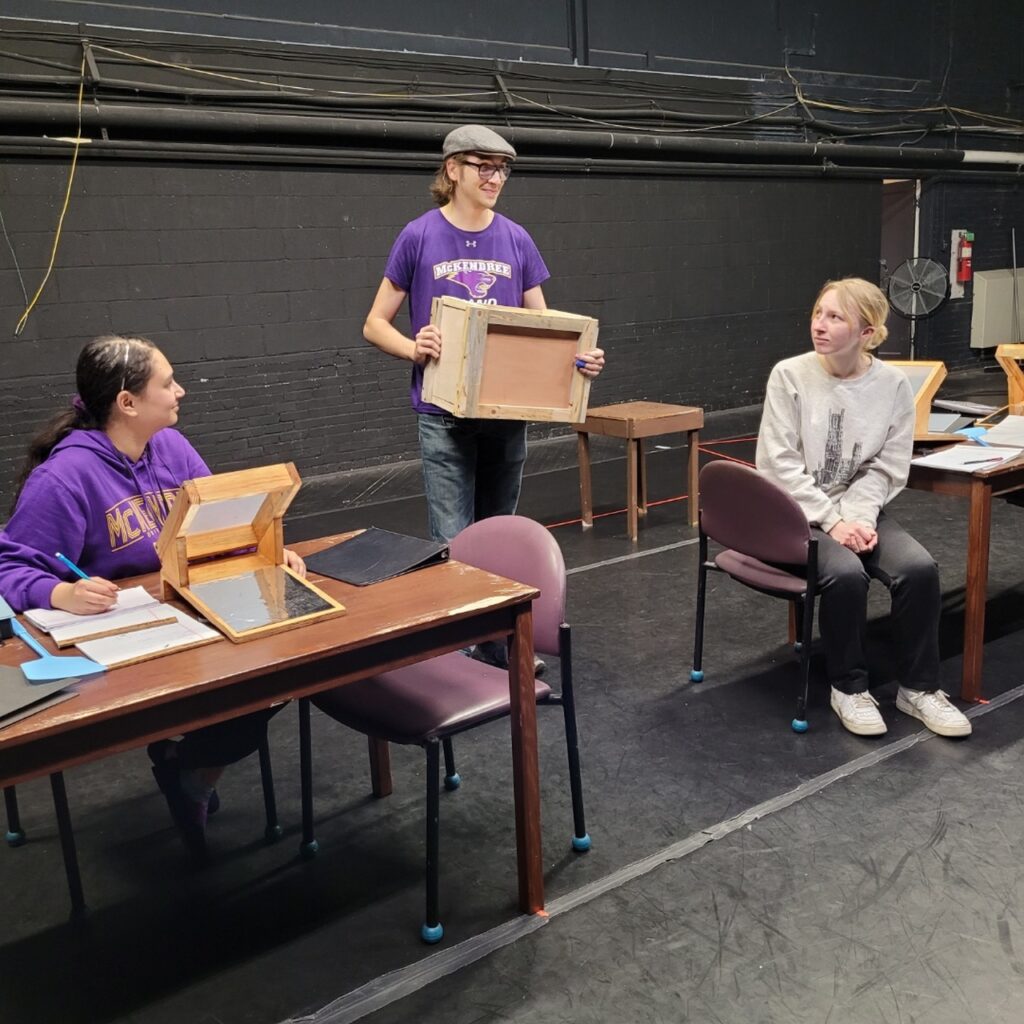
McKendree theatre’s spring play, Silent Sky, tells the story of real-life astronomer Henrietta Leavitt. The play, written by Lauren Gunderson, focuses on Henrietta’s time working at Harvard Observatory in the early 1900s as one of their female “computers” – a person who did the math for (mostly male) astronomers – and her efforts to balance her relationships with her quest to understand the universe.
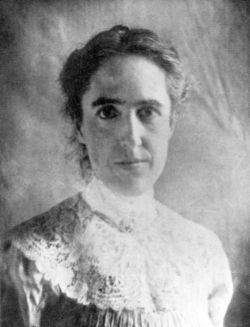
As the play highlights, in real life, Henrietta discovered over 2,000 Cepheid variable stars, which are stars that go through periods of brightness and dimness. Her biggest achievement was the discovery of how to calculate Cepheid stars’ distance based on their brightness cycles.1 This discovery made it possible to determine how far away Cepheid stars are from Earth.1 Her discovery was then used by Edwin Hubble to measure that galaxies existed outside of the Milky Way.2
At Harvard, Henrietta worked with astronomers Annie Jump Cannon and Williamina Fleming, who are also characters in the play. Senior Madeline Trinity, who will be playing Annie Cannon for two of the performances, said that when portraying a person who actually existed, “It’s more challenging because you have to be them without being them, but it also gives a good example because it’s someone who actually existed.”
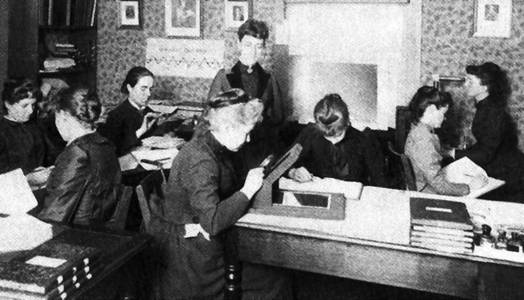
Most people are unaware of Henrietta Leavitt’s story, and she received little recognition in her lifetime. According to Michelle Magnussen, who is directing the play at McKendree, this performance is a way of honoring Henrietta and her underrecognized achievements: “The play is meaningful without being preachy, and I really love that about it. … She didn’t see her legacy. … And doing a play like this feels like we can honor that a little bit, bring out a story that people should know because we all know the Hubble telescope and the Webb telescope and the stuff that NASA does, but that wouldn’t have been possible without the stuff that this woman did when she got almost no credit for it and no encouragement for doing it, and she did it anyway.”

The play’s focus on forgotten history is one of the reasons why Michelle picked this play for McKendree to put on this semester. She said, “Henrietta was an amazing woman that we don’t know about. And as a feminist and a history buff, I love hearing about anybody that history forgot about for whatever reason.” Also, since March is Women’s History Month, Michelle said she is excited to make the play a part of the Arts Education series for the Hettenhausen Center for the Arts and invite local students to see an exceptional Thursday morning performance at the end of the month.
Madeline also likes how the play covers history. When asked what she thinks the audience will enjoy most about the play, she said, “I think also people will really like the female empowerment and seeing the women’s side of history that we don’t often get to see in history classes or science classes or otherwise.”
However, even though the play is based on history, Michelle points out that “it’s also funnier than you think. … And it’s touching.”
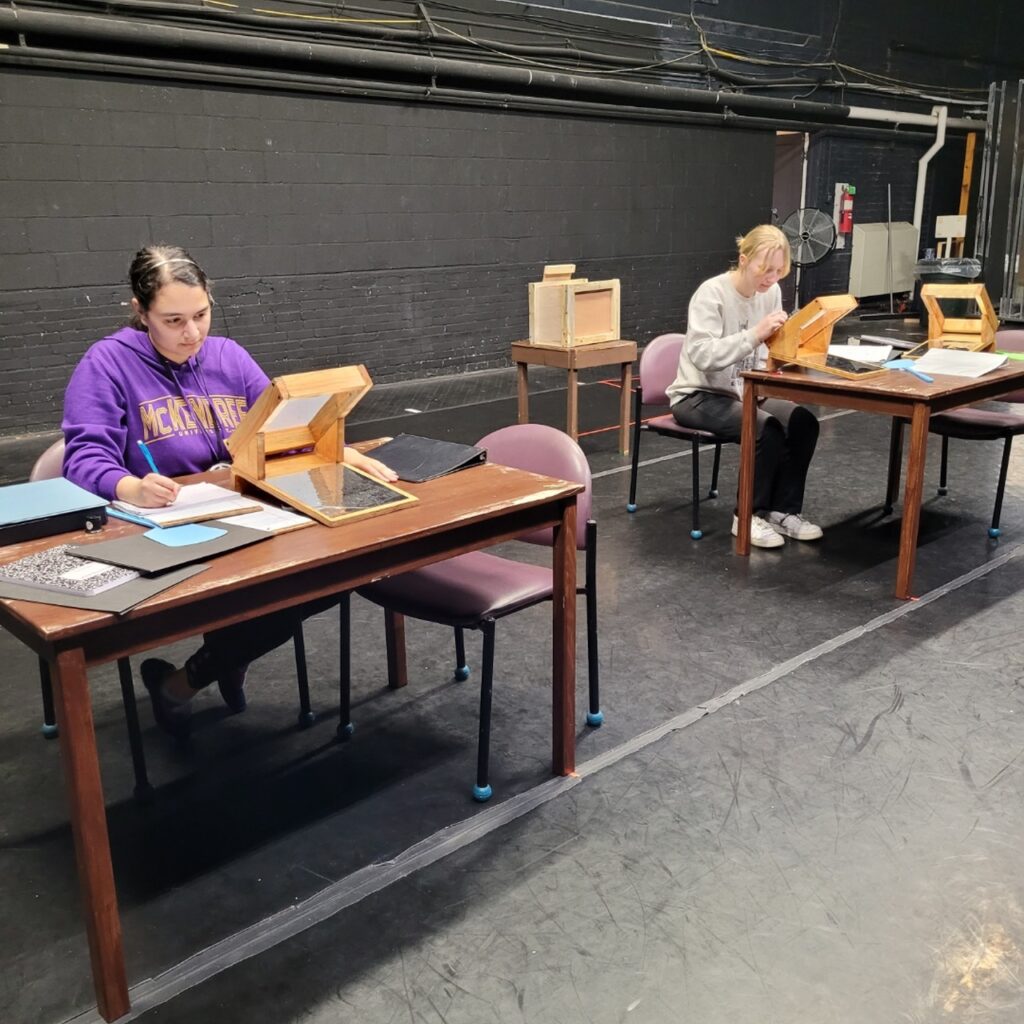
The show also involves a lot of work from the technical side of theatre. From the detailed set to the period-accurate props to the lights, projections, and music woven throughout the show, the crew has to put in a lot of work to make the show run smoothly. According to Michelle, “This is a different level of tech than we’ve ever done before between the projections that we’re using throughout, and the music that’s integrated into a lot of scenes, and the fact that there are lines that have to go with the music, and trying to figure out the rhythm of that, and get the actors ready to do that. I think that’s the biggest challenge.”
Despite all the challenges encountered when putting together a play, Michelle said that one of the most rewarding parts of the rehearsal process is seeing the six-person cast bond and grow: “I know from my experience as an actor, the best shows are the ones where the cast feels like a family, they bond, and there’s a group thing going on. And I love watching that, and it doesn’t happen with every show, but I think it’s happening with this one, and I enjoy watching it a lot. And watching people become better actors and tackle roles that maybe a year ago they didn’t think they could do, and doing it and discovering new things about what they can do on stage.”

Madeline Trinity has been a part of this theatre family for four years and will be the last theatre major to graduate from McKendree this year. When asked if her last play at McKendree feels different to her, she said, “It’s bittersweet. It’s great because I’m excited to graduate, and I really do like this show. But I will be really sad to leave McKendree’s theatre program. It’s been a really huge part of my life for the past four years, and obviously, Michelle and Doug [Magnussen] are great people – my family.”
McKendree theatre will be performing Silent Sky at the Hettenhausen Center for the Arts on Thursday, March 30th at 10:00 A.M., Friday, March 31st at 7:30 P.M., Saturday, April 1st at 7:30 P.M., and Sunday, April 2nd at 2:30 P.M. Tickets are $5 but are free for McKendree students, faculty, and staff. Tickets can be purchased at the Hett box office or McKendree University | Ticketing – Ticket Office Home (universitytickets.com)
1Margolis, E. A., & Thompson, S. (2021, December 28). Remembering astronomer Henrietta Swan Leavitt | center for astrophysics. Center for Astrophysics. Retrieved March 13, 2023, from https://cfa.harvard.edu/news/remembering-astronomer-henrietta-swan-leavitt
2Mariani, G. (n.d.). Henrietta Leavitt – celebrating the forgotten astronomer. aavso. Retrieved March 13, 2023, from https://www.aavso.org/henrietta-leavitt-%E2%80%93-celebrating-forgotten-astronomer
